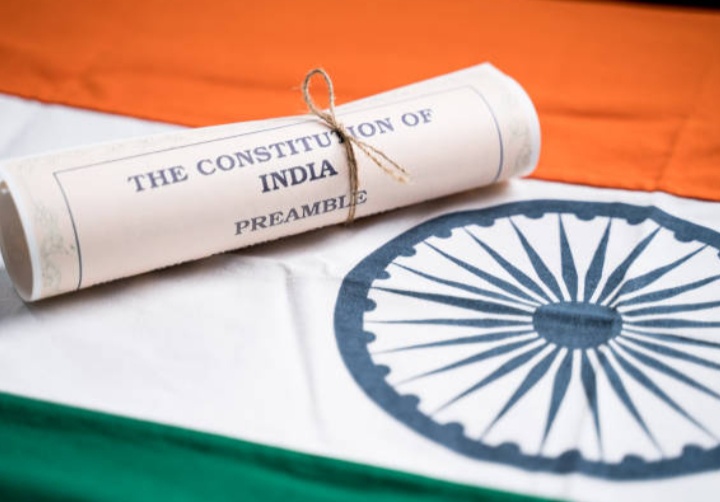The Preamble to the Constitution of India sets forth the fundamental principles and objectives of the document. It begins with the phrase “We, the people of India,” signifying the ultimate authority of the people. It outlines India’s form as a Sovereign, Socialist, Secular, Democratic Republic, and aims to secure justice, liberty, equality, and fraternity for all its citizens. The Preamble was adopted on November 26, 1949, and serves as a guiding light in interpreting the Constitution.
Here’s a more detailed look:
Key Concepts:
The Preamble outlines the key characteristics of the Indian state (Sovereign, Socialist, Secular, Democratic, Republic) and the fundamental objectives of the constitution (justice, liberty, equality, fraternity).
Source of Authority:
The phrase “We, the people of India” emphasizes that the constitution derives its authority from the people, not from any external source.
Nature of the State:
The Preamble declares India to be a Sovereign, Socialist, Secular, Democratic, and Republic state, defining the structure and principles of the Indian government.
Objectives:
The Preamble aims to secure justice (social, economic, and political), liberty of thought, expression, belief, faith, and worship, equality of status and opportunity, and fraternity to ensure the dignity of the individual and the unity and integrity of the nation.
Adoption:
The Preamble states that the Constituent Assembly adopted, enacted, and gave to themselves the Constitution on November 26, 1949.


